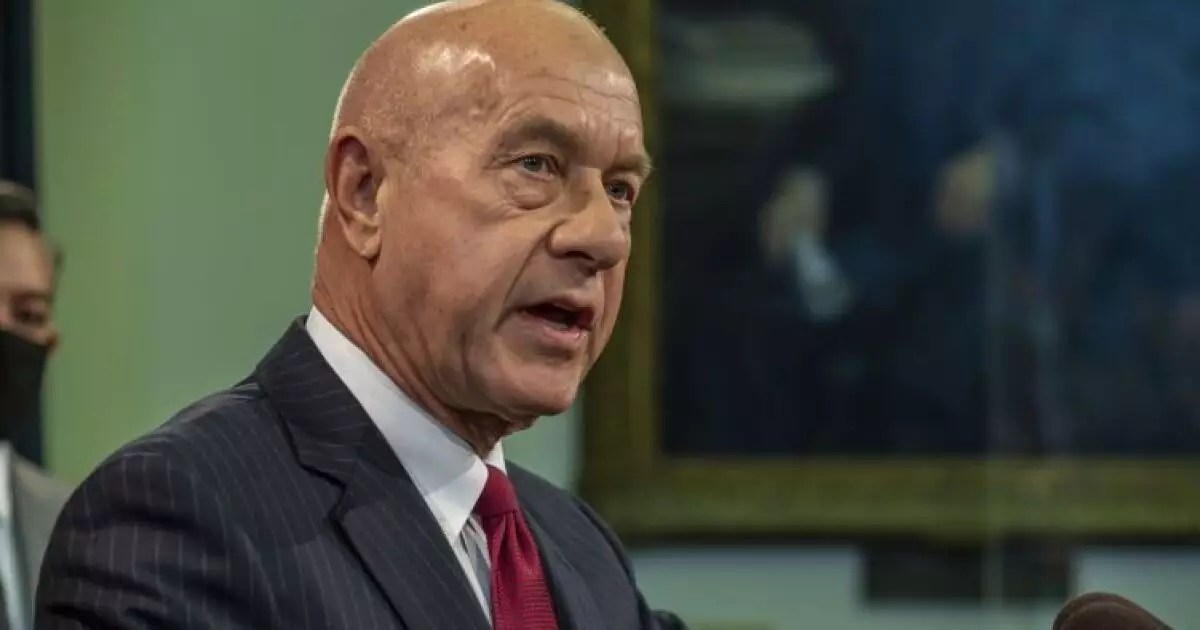The recent revelation that Houston will be compelled to spend a staggering $100 million annually on drainage and road infrastructure isn’t just a financial concern—it epitomizes a systemic failure in urban planning. Mayor John Whitmire’s announcement marks a significant moment, yet it barely scratches the surface of a complex and alarming situation. The city, known for its booming energy sector and vibrant cultural life, suffers from aging infrastructure that is increasingly ill-equipped to meet the demands of its residents. In a world where cities are rapidly modernizing, the failure to resolve these infrastructural inadequacies is nothing short of a dereliction of duty.
A Legal Band-Aid on a Gaping Wound
The litigation that led to this spending mandate caught many off-guard, initiating a reckoning that was long overdue. Filed in 2019, it challenges the city’s ability to effectively allocate property taxes aimed at revitalizing crucial public assets. Earmarking a greater percentage of property tax revenue—from 57% to a potential 100% by 2028—offers short-term relief but is, ultimately, a band-aid on an urgent issue. The underlying mismanagement should raise eyebrows across both sides of the political spectrum—this isn’t merely a fiscal crisis; it’s an indictment of how neglect has masqueraded as governance.
Political Optimism and Fiscal Anxiety
While there’s palpable enthusiasm among city officials about the steps forward, it’s vital to scrutinize that optimism. Mayor Pro Tem Martha Castex-Tatum’s comments resonate with hope, but they also reflect a troubling detachment from the dire reality confronting everyday citizens. Yes, dedicating funds to repair these crumbling streets and drainage systems is essential; however, it should not distract us from the urgent need for comprehensive reform that not only addresses the symptoms but also the broader governing landscape.
Financial Whiplash: The City’s Declining Reserves
Houston’s financial turmoil is evident, as indicated by dwindling budget reserves that have plummeted from $349 million to just $228 million within a few months. Such instability should alarm residents. The recalibrated outlook from Fitch Ratings and S&P Global, shifting from stable to negative, signals that even the city’s creditworthiness is in jeopardy. This fiscal constriction may lead to a pervasive lack of confidence among investors and residents alike. A city that refuses to invest wisely in infrastructure is sowing the seeds for economic stagnation.
A Glimmer of Hope Amidst Dismay
In the face of these challenges, there’s a flicker of hope. The proposed Texas bill that aims to redirect 30% of the Harris County Toll Road Authority’s revenue towards public safety could offer the city much-needed financial relief. However, relying on external funds to patch over systemic issues is not sustainable. It’s a quick fix that begs the question: When will local leaders take ownership of their fiscal responsibilities rather than leaning on legislative crutches?
Ultimately, the road ahead may not be paved, but it demands transparency, accountability, and a strategic vision that transcends superficial fixes to genuinely elevate the lives of Houston residents.


Leave a Reply